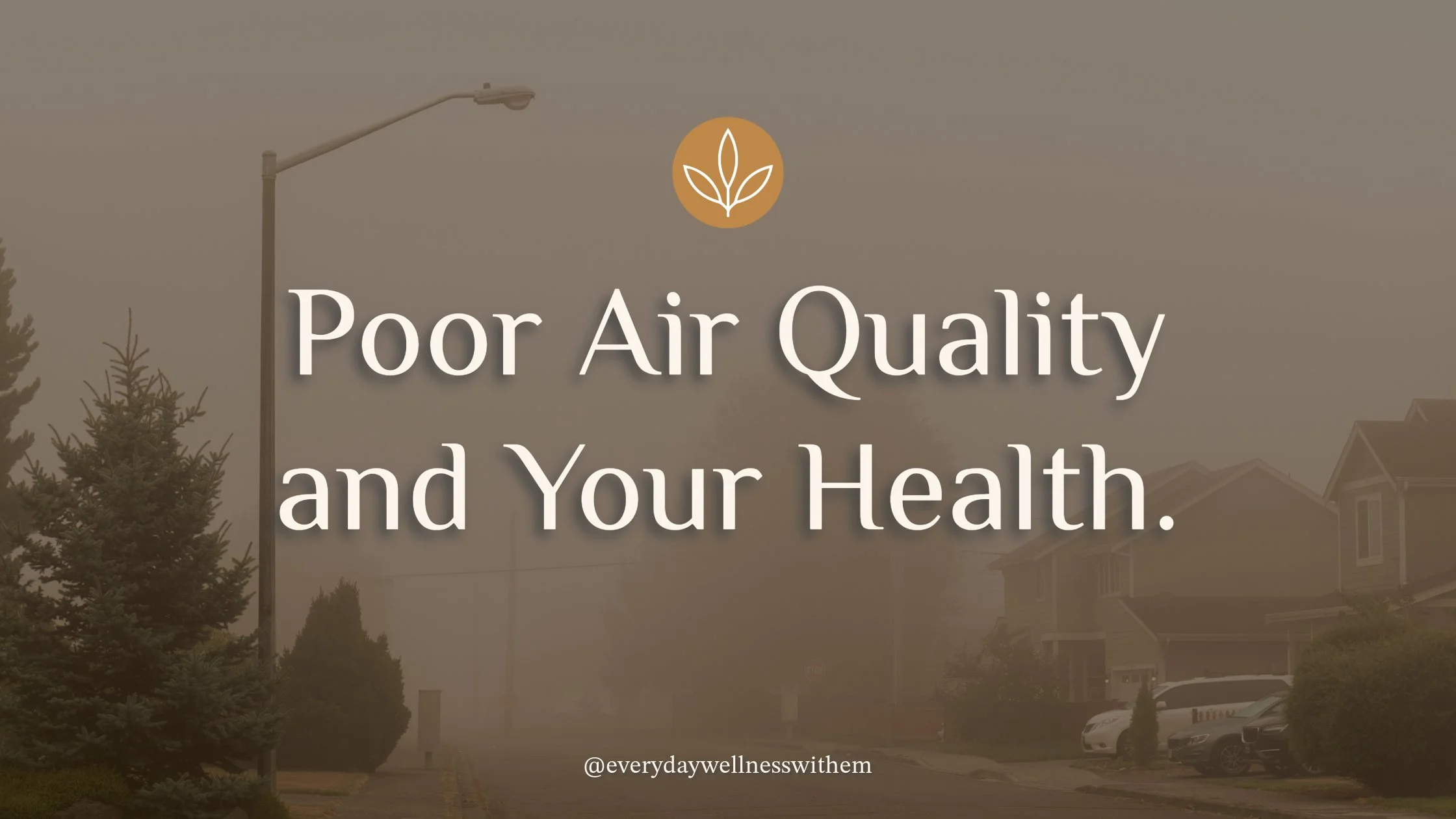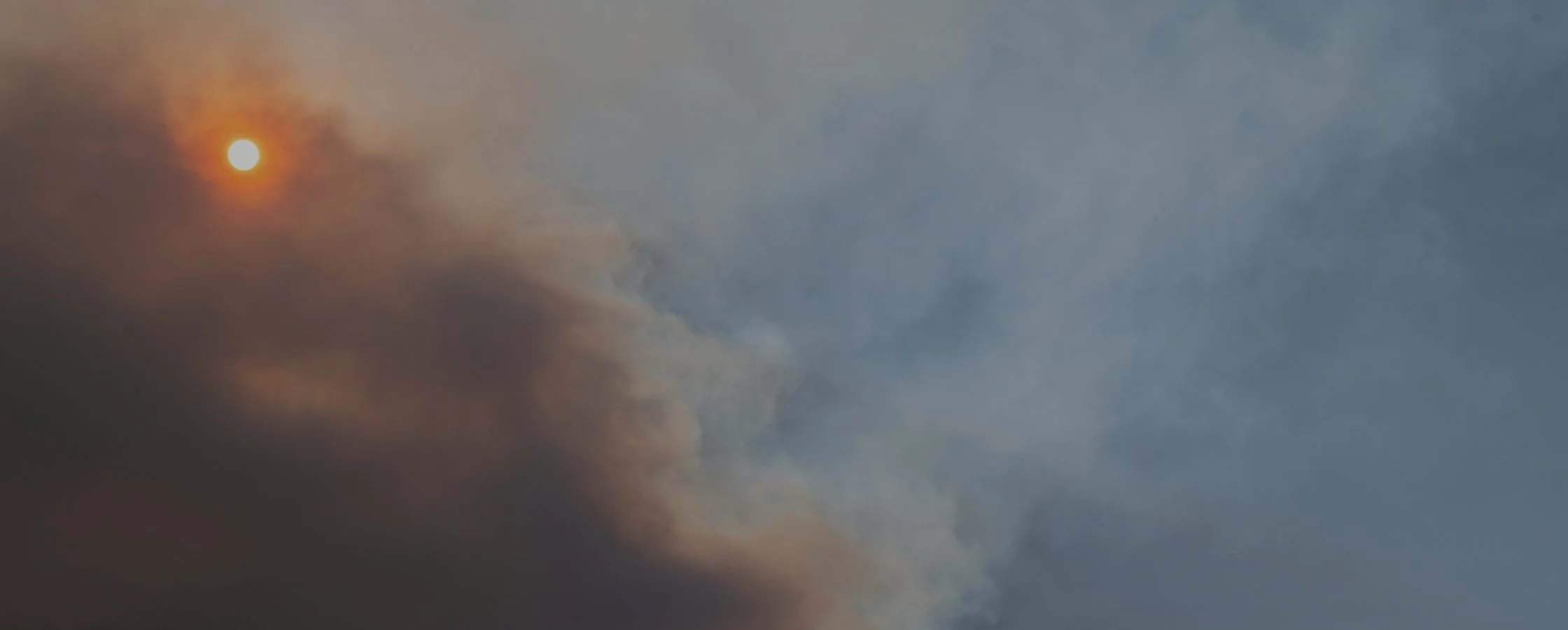Wildfire Smoke and Your Health.
Unfortunately with the warmer months in summer come dry spells and these go hand in hand with wildfire season.
Whether you want to believe it or not our earth's temperatures are shifting and there have been trends for the last few years of increasingly warm and dry summers which bring on the dangers of wildfires.
As fires are obviously dangerous we often don’t think too much about the repercussions of what they produce. Smoke.
If you are like me living in an area that is currently experiencing a hike in wildfires this year you probably have noticed the smell of smoke. It was so smokey here in central Alberta that the last few days were almost cold and dark due to the smoke blocking out most of the sun and heat. While luckily my area is safe from fires we are still experiencing the majorly reduced air quality from the Jasper fires only 4 hours away and fires up in Northern Alberta.
This weather shift has had me rethinking many of my normal outdoor activities and increasing my support for cardiovascular health and since I know MANY people around the world are also living in poor air quality, let alone from wildfires, I wanted to share some tips on how to support your lung and cardiovascular health during this downside of the summer season.
Wildfire Smoke/ Poor Air Quality and Your Health
Wildfire smoke/ poor air quality can have significant impacts on health, particularly for vulnerable populations such as children, the elderly, and those with respiratory conditions. The fine particles and toxic gases can irritate the eyes, throat, and lungs, leading to coughing, shortness of breath, and chest discomfort. Prolonged exposure to wildfire smoke in particular has been linked to exacerbating asthma, increasing the risk of respiratory infections, and worsening cardiovascular conditions. It is important to stay indoors, use air purifiers, and follow local health advisories during periods of poor air quality due to wildfire smoke to protect your health.
Tips for Health During Wildfires
Stay Indoors: Close all windows and doors to prevent smoke from entering your home.
Use Air Purifiers: Consider using air purifiers with HEPA filters to improve indoor air quality.
Limit Outdoor Activities: Reduce time spent outdoors, especially during peak wildfire hours when air quality is the poorest.
Stay Informed: Keep up to date with local air quality reports and wildfire updates from official sources.
Stay Hydrated: Drink plenty of water to stay hydrated, as smoky air can cause dehydration.
Avoid Exercise Outdoors: Postpone outdoor exercise to prevent inhaling more smoke particles. Instead, go to an indoor pool, walk some laps at the gym, or go virtual golfing! There are LOTS of great things to do inside for exercise when the air isn’t the best quality outside.
Create Clean Air Spaces: Spend time in areas with clean air, such as libraries or shopping malls, museums, movie theaters equipped with air conditioning.
Protect Vulnerable Individuals: Take extra care of children, seniors, and individuals with respiratory conditions during wildfires and pets! Our pets have lungs too, DUH, so make sure they are also kept safe when the air quality is poor.
Prepare an Emergency Kit: Have necessary supplies ready, including medications, important documents, and first aid items, in case of evacuation.
Seek Medical Help if Needed: If you experience symptoms like difficulty breathing, chest pain, or severe fatigue, seek medical attention immediately.
5 Ways to Support Lung & your Cardiovascular System for Your Overall Health:
Quit Smoking: The most crucial step towards lung health is to quit smoking and avoid secondhand smoke. Smoking damages the lungs and increases the risk of various respiratory diseases.
Regular Exercise: Engage in regular physical activity to improve lung function and capacity. Aerobic exercises like walking, running, or swimming can strengthen the lungs and improve overall respiratory health.
Healthy Diet: Maintain a balanced diet rich in fruits, vegetables, whole grains, and lean proteins. Antioxidants found in these foods help reduce inflammation and promote lung health.
Stay Hydrated: Drink an adequate amount of water to keep the respiratory system hydrated and functioning optimally. Proper hydration helps thin mucus in the lungs, making it easier to breathe.
Reduce Exposure to Pollutants: Minimize exposure to environmental pollutants like dust, allergens, and chemicals. Use air purifiers at home, avoid outdoor activities during high pollution days, and ensure good ventilation indoors.



